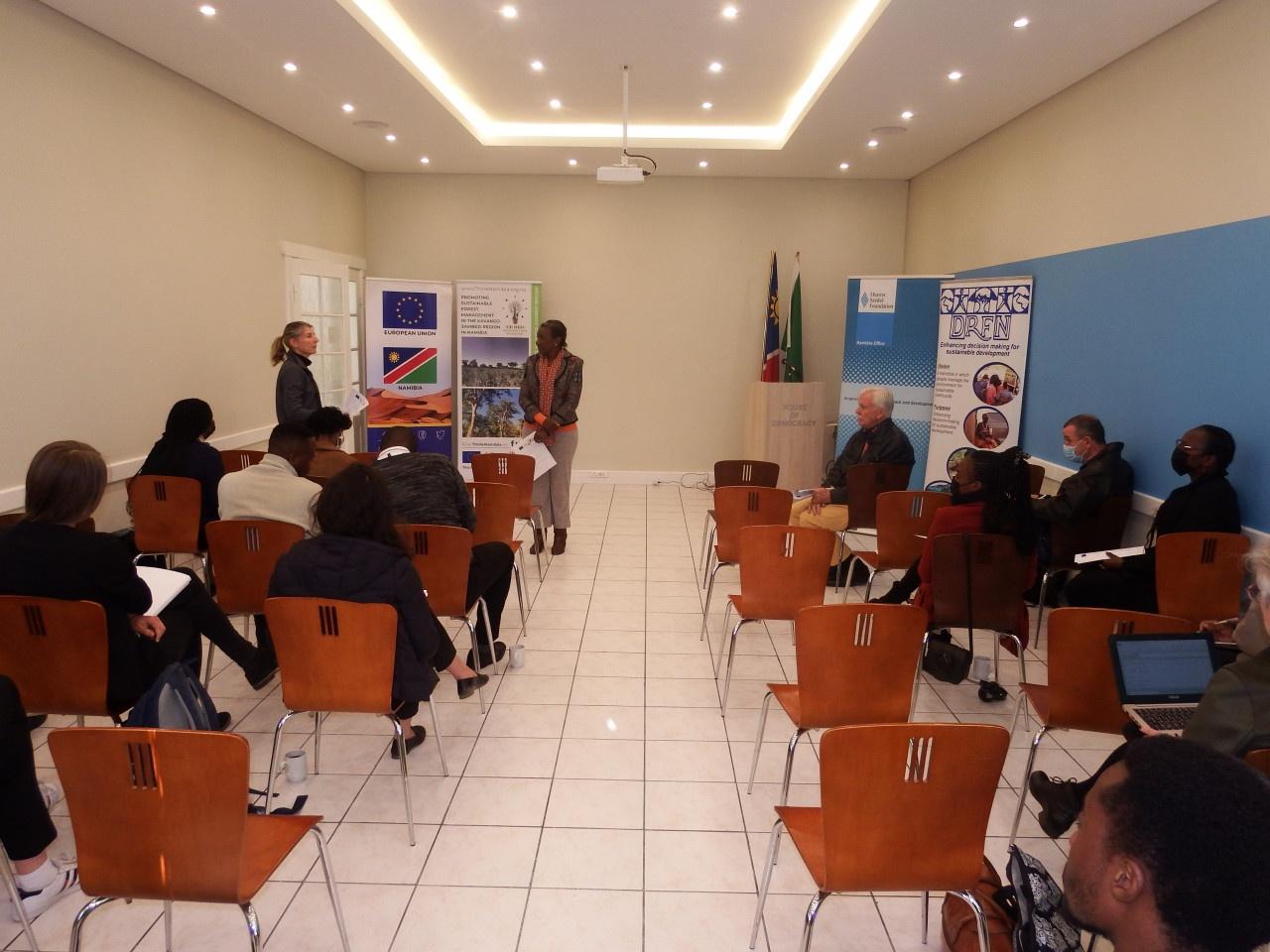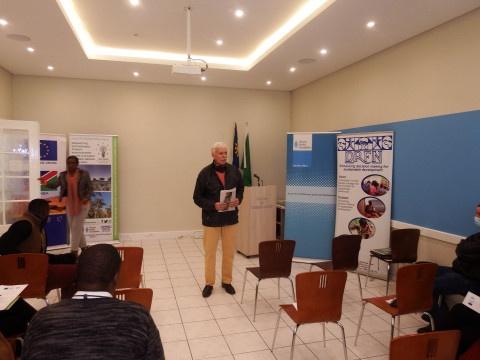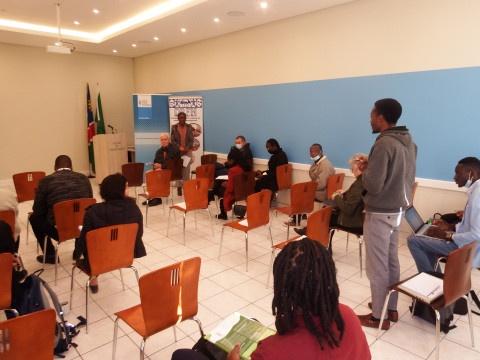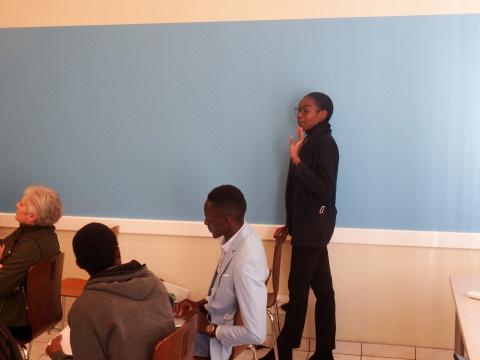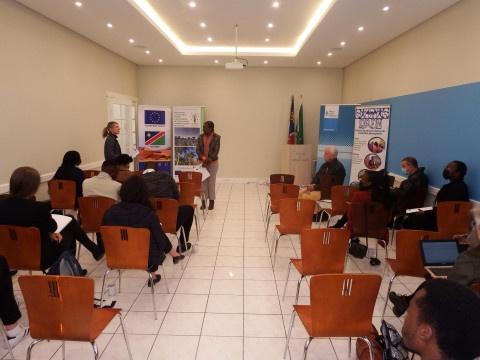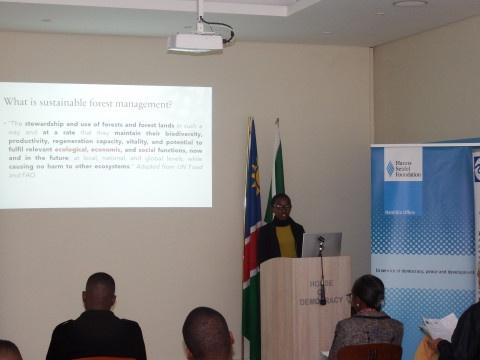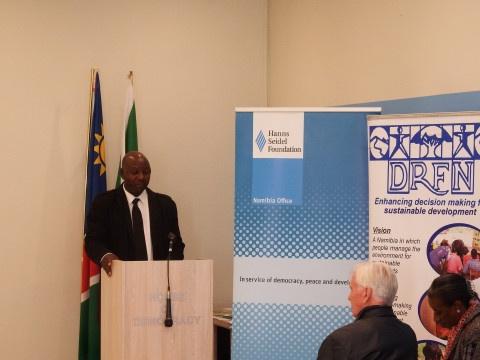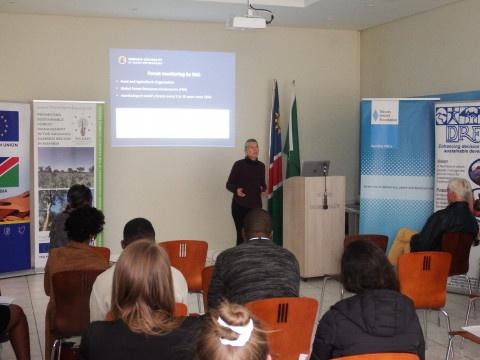Seminar on Sustainable Forest Management with Educators
The NSFM project held a teacher and educators’ seminar on Sustainable Forest Management (SFM) on 2 June 2022 at the House of Democracy, Windhoek. The seminar was attended by organisations such as EduVentures, LAC, DAPP, WWF, IUM, UNAM, NIED, teachers, NEEN members etc. The seminar was aimed at informing decision-makers of the school curriculum and educational programmes on SFM and its importance for Namibia.
The event was moderated by Ms Doufi Namalambo, and the welcoming remarks were done by Dr Martin Schneider (Director of the DRFN) who thanked everyone for attending and giving a brief introduction to what the project entails. Several presentations were made. An introduction to forestry in Namibia was done by Dr Vera De Cauwer from the University of Science and Technology (NUST). This presentation touched on aspects such as the location of forests in Namibia, the significance of forests, forest management in Namibia and the major threats experienced by the Namibian forest. Briefly, Dr De Cauwer recommends an urgent need to establish a new forest map for Namibia and active forest management to be introduced in Namibia and for more research to be done. Ms Albertina Fillipus from the International University of Management (IUM) shared what SFM is by defining SFM, the different forestry ecosystem services, SFM practices and their importance. Overall, she encouraged people to practice sustainability, raise more awareness on SFM and plant more trees. Every participant was encouraged or rather challenged to plant a tree for their birthdays this year. Mr Clarence Maungulo, currently working for WWF, presented a study that was aimed at assessing the effects of de-bushing on the herbaceous layer in the woodland savanna in Katima farm area, Zambezi Region, by determining species richness, relative frequency/abundance, and composition of grasses in the cleared versus uncleared area. And overall recommend possible methods which would best improve ways of clearing land sustainably.
Discussions were held on how we can increase forests in Namibia by doing both afforestation and reforestation. Furthermore, the topic of SFM is advised to be adopted in the education curriculum.
The closing remarks were done by the NIED Director Dr Patrick Simalumba who thanked the organisers. He underlined that the Ministry of Education, Sports, and Culture appreciates the project's collaborative efforts in Namibia. He encourages attendees to shift their attitudes toward learning and become critical. He advised parents to support the learners by adopting a homeschooling approach to learning and identifying strategies and methods for teaching learners about forest ecology and services and that everyone should be an ambassador for environmental topics.
When you subscribe to the blog, we will send you an e-mail when there are new updates on the site so you wouldn't miss them.
